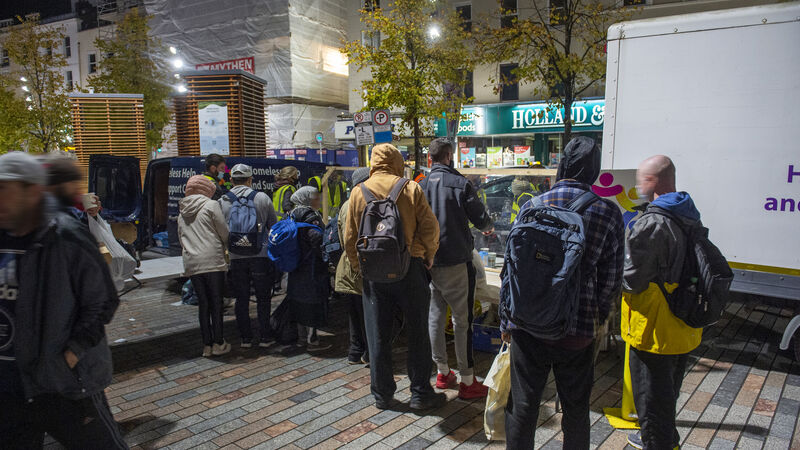Help the homeless groups do good work, but lack of vetting is a worry

Every Tuesday and every second Friday night Homeless Help and Support Cork set up on Patrick Street, Cork, to hand out hot meals and clothes. Last Tuesday evening over 60 people turned up. Picture: Dan Linehan
e must assume that Anthony Flynn set out with good intentions. Moved by the nightly sight of so many people sleeping rough on Dublin’s streets, the then 27-year-old began in 2013 to distribute sandwiches and sleeping bags to those in need.














